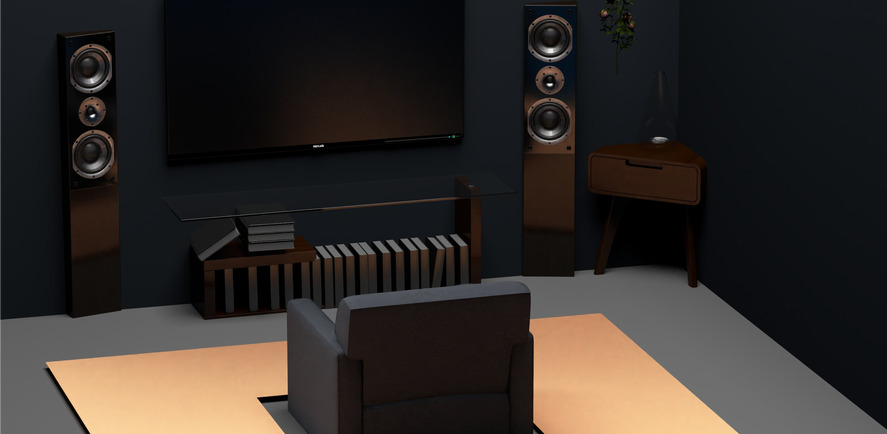Setting up a home theatre is more than just lightning. Your AC power electronics and devices experience numerous power surges and noises that can cause them to damage beyond repair. Due to the electrical fires, shocks, and outages, your expensive system can get useless. That’s why a power manager is an important aspect to ensure the safe and reliable operation of the distribution systems.
For your ease, you may head over to the online customer reviews so that you can make a better decision. Well, we got you covered. Collected.Reviews are a UK-based customer-driven authentic reviewing platform that helps to build trust and transparency among the customers and businesses. People share their experiences in the form of reviews and future customers can make their buying decisions based on feedback. Online shopping reviews make a huge difference when buying something.
What exactly is the home theatre power manager?
A power manager is a power board that is responsible for the power distribution among the connected electronics and devices. This connection is supported by several sockets where users can plug in all the home theatre equipment. Surge protectors, power regenerators, and UPS units are all related equipment that operates as power managers for home theatre systems.
A power manager not only regulates the energy distribution to your devices but …
it also provides surge protection and cleans "dirty" power flow. Additional functions such as sequential system power ON/OFF and over/under-voltage safety are available on more complex and costly versions. Other functions, like a home theatre system, will be quite useful for people who hold a lot of equipment and devices.
The role of power managers in a home theatre
It's critical to safeguard these pricey devices against electrical surges since a little disturbance to the Home Theatre System might result in additional costs and a whole slew of missed TV episodes.
Home theatre power centers
involve three functions;
- Power regulation includes optimizing the power flow with proper electricity distribution
- Surge protection handles the electrical malfunctions and extends the lifespan of all the connected electronics and devices
- Noise filtration to provide clear sound and immersive cinematic experience
When your home entertainment system doesn't have power management, you run the risk of stumbling over strewn and dirty cables that would otherwise be unmanaged. With the power manager, you experience a multi-channel home theatre setup that you’ll enjoy.
Dirty power - anomalies in the power supply …
Anomalies in the power supply are the cause of dirty electricity. Voltage fluctuations, power outages, and mode disturbance are all hallmarks of filthy power. While voltage fluctuations and power spikes can cause damage to your electronics, mode disturbance can harm performance.
Mode noise is a low-level signal that, if not tuned out, can be perceived as pops or hums through your speakers. When other devices are utilized, it is frequently recognized.
Why would you need a power manager?
Due to the substantial expense you've made in your home theatre devices, it's only reasonable to want to secure them. Power sources may be unstable even in newly wired houses, and shielding isn't the only benefit given.
With a healthier electrical supply, the efficiency of your gear can be increased. Even while technological developments have greatly enhanced the voltage stability delivered, it may always be improved more. Moreover, read the online reviews like Audio Advice reviews on the Collected.Reviews platform to make the informed decision on power manager.
Hardcore audiophiles hate power manager
It is somehow strange but hardcore audiophiles hate power managers and advocate against the use of home theatre power centres for the audio peripherals. They claim many negative sides of the power manager even when they agree upon the protection aspects of it.
Most commonly, they claim that power managers cut out the sounds (bass and treble) which shouldn’t be removed. They believe that as a result of this problem, the sound generated by those devices with power regulators is bland and uninteresting.
What to do then …?
According to them, the fix to the situation is to install a separate, sound systems power connection in one's house. They can entirely avoid the noise created by dirty energy by allocating a separate voltage connection from the rest of their devices in their home.
Is installing a home theatre power center a necessity?
Keep in mind that unclean electricity might have an impact on your home media system's overall performance. It can also create a failure in certain cases, resulting in the device being destroyed beyond repair. Even if it isn't common, it might happen to anyone who isn't utilizing power management. If your region has a history of high levels of dirty power, a power manager/conditioner for your home theatre system (as well as other equipment and devices) is a necessity.
Is a home theatre power manager worth it?
Hopefully, you can understand how important it is to have a home theatre power management setup now though. It's a tiny fee involved for the security of all of your pricey and valued home entertainment gear.
Not only will you feel better knowing your devices are safe, but you'll also benefit from better acoustics. This is self-evident. There is a solution for even the most ardent audiophiles. There's no reason to leave a power manager out of your home theatre arrangement.
The bottom line -
As of now, it is crystal clear that power managers are a necessity, not a want. So, whenever you are looking out to purchase a home theatre power center that meets your needs, consider these factors to look in; several outlets, size, surge protection, absorption rate, clamping voltage, power cord, and UL certification.
Make the best choice and enjoy your home theatre.






